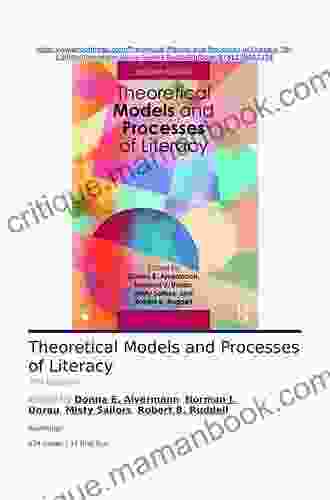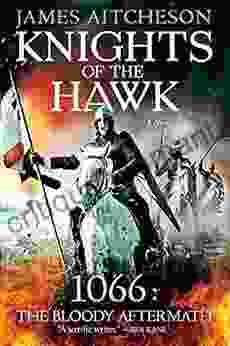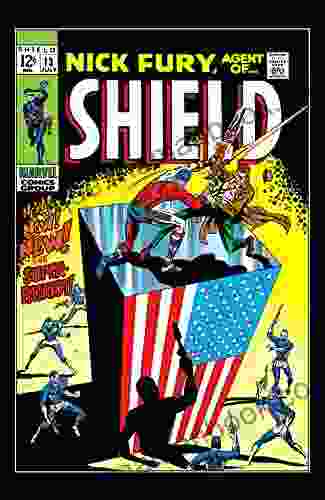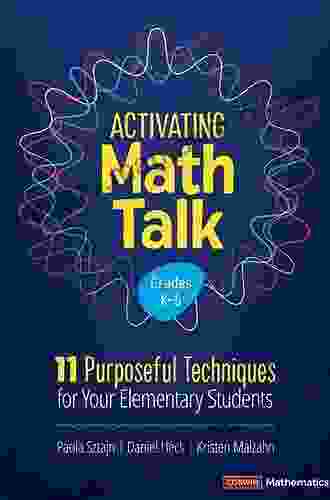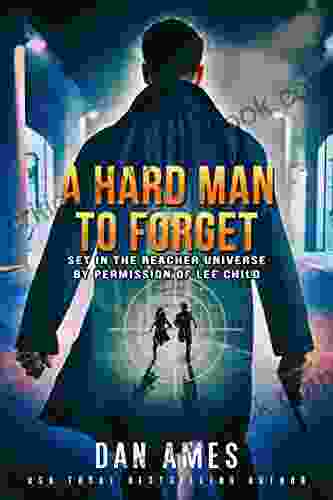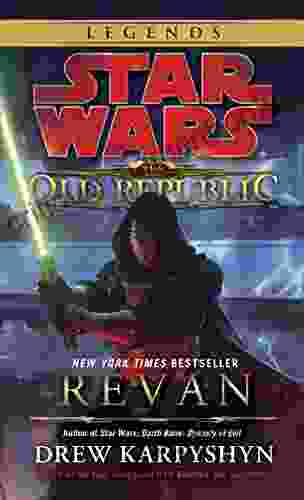Theoretical Models and Processes of Literacy: A Comprehensive Exploration

4.5 out of 5
| Language | : | English |
| File size | : | 7852 KB |
| Text-to-Speech | : | Enabled |
| Enhanced typesetting | : | Enabled |
| Word Wise | : | Enabled |
| Screen Reader | : | Supported |
| Print length | : | 640 pages |
| Item Weight | : | 12 ounces |
| Dimensions | : | 10.12 x 7.17 x 0.79 inches |
Literacy is a complex and multifaceted skill that plays a vital role in our personal, social, and economic lives. It encompasses a wide range of abilities, including reading, writing, speaking, and listening, and is essential for effective communication, learning, and participation in society.
Over the years, researchers have developed a variety of theoretical models to explain the processes of literacy development and instruction. These models provide frameworks for understanding how individuals learn to read and write, and inform instructional practices. In this article, we will explore some of the most influential theoretical models of literacy, including cognitive models, sociocultural theories, and interactive models.
Cognitive Models of Literacy
Cognitive models of literacy focus on the mental processes involved in reading and writing. These models assume that literacy is a cognitive skill that can be acquired through instruction and practice.
One of the most influential cognitive models of literacy is the Simple View of Reading (SVR) model. The SVR model proposes that reading comprehension is a function of two main components: decoding (the ability to decode written words) and language comprehension (the ability to understand the meaning of words and sentences).
Another prominent cognitive model of literacy is the Interactive Compensatory Model (ICM). The ICM model proposes that reading is an interactive process that involves the use of multiple cognitive skills, including decoding, language comprehension, and prior knowledge. The model suggests that readers can compensate for weaknesses in one skill by using strengths in another.
Sociocultural Theories of Literacy
Sociocultural theories of literacy emphasize the role of social and cultural factors in literacy development. These theories view literacy as a social practice that is shaped by the interactions between individuals and their environment.
One of the most influential sociocultural theories of literacy is the Situated Learning Theory (SLT). The SLT theory proposes that learning is situated in specific social and cultural contexts, and that individuals learn best when they are engaged in meaningful activities that are relevant to their lives.
Another prominent sociocultural theory of literacy is the New Literacy Studies (NLS). The NLS movement emerged in the late 20th century as a critique of traditional literacy theories, which were seen as too narrow and individualistic. NLS scholars argue that literacy is a multimodal and situated practice that is shaped by a variety of social and cultural factors.
Interactive Models of Literacy
Interactive models of literacy combine elements of both cognitive and sociocultural theories. These models view literacy as a complex and interactive process that involves the use of multiple cognitive skills, as well as social and cultural factors.
One of the most influential interactive models of literacy is the Transactional Model of Reading (TMR). The TMR model proposes that reading is a transaction between the reader and the text, and that the meaning of a text is constructed through the reader's interactions with the text.
Another prominent interactive model of literacy is the Situated Cognition Model (SCM). The SCM model proposes that learning is situated in specific social and cultural contexts, and that individuals learn best when they are engaged in meaningful activities that are relevant to their lives. The SCM model also emphasizes the importance of social interaction in literacy development.
The theoretical models of literacy that we have discussed in this article provide a comprehensive framework for understanding the processes of literacy development and instruction. These models emphasize the importance of cognitive skills, social and cultural factors, and interactive processes in literacy learning. By understanding these models, educators can develop more effective instructional practices that support the literacy development of all learners.
4.5 out of 5
| Language | : | English |
| File size | : | 7852 KB |
| Text-to-Speech | : | Enabled |
| Enhanced typesetting | : | Enabled |
| Word Wise | : | Enabled |
| Screen Reader | : | Supported |
| Print length | : | 640 pages |
| Item Weight | : | 12 ounces |
| Dimensions | : | 10.12 x 7.17 x 0.79 inches |
Do you want to contribute by writing guest posts on this blog?
Please contact us and send us a resume of previous articles that you have written.
 Top Book
Top Book Novel
Novel Fiction
Fiction Nonfiction
Nonfiction Literature
Literature Paperback
Paperback Hardcover
Hardcover E-book
E-book Audiobook
Audiobook Bestseller
Bestseller Classic
Classic Mystery
Mystery Thriller
Thriller Romance
Romance Fantasy
Fantasy Science Fiction
Science Fiction Biography
Biography Memoir
Memoir Autobiography
Autobiography Poetry
Poetry Drama
Drama Historical Fiction
Historical Fiction Self-help
Self-help Young Adult
Young Adult Childrens Books
Childrens Books Graphic Novel
Graphic Novel Anthology
Anthology Series
Series Encyclopedia
Encyclopedia Reference
Reference Guidebook
Guidebook Textbook
Textbook Workbook
Workbook Journal
Journal Diary
Diary Manuscript
Manuscript Folio
Folio Pulp Fiction
Pulp Fiction Short Stories
Short Stories Fairy Tales
Fairy Tales Fables
Fables Mythology
Mythology Philosophy
Philosophy Religion
Religion Spirituality
Spirituality Essays
Essays Critique
Critique Commentary
Commentary Glossary
Glossary Bibliography
Bibliography Index
Index Table of Contents
Table of Contents Preface
Preface Introduction
Introduction Foreword
Foreword Afterword
Afterword Appendices
Appendices Annotations
Annotations Footnotes
Footnotes Epilogue
Epilogue Prologue
Prologue Ben Auffarth
Ben Auffarth David Davis
David Davis Lucille Clifton
Lucille Clifton Will Hunt
Will Hunt Steve Healey
Steve Healey Giuseppe Verdi
Giuseppe Verdi Michelle Icard
Michelle Icard Amy Harmon
Amy Harmon Michael Moats
Michael Moats Mimi Love
Mimi Love Adam Sappington
Adam Sappington Antigone Kefala
Antigone Kefala Gene Kranz
Gene Kranz Linda Venis
Linda Venis Meg Meeker
Meg Meeker Adam Danforth
Adam Danforth Donna D Ignatavicius
Donna D Ignatavicius Chuck Whelon
Chuck Whelon Michael Crichton
Michael Crichton M Mazzoni
M Mazzoni
Light bulbAdvertise smarter! Our strategic ad space ensures maximum exposure. Reserve your spot today!
 Javier BellFollow ·18.3k
Javier BellFollow ·18.3k Terry BellFollow ·7.5k
Terry BellFollow ·7.5k Harold BlairFollow ·3.5k
Harold BlairFollow ·3.5k Jorge Luis BorgesFollow ·14.6k
Jorge Luis BorgesFollow ·14.6k Jarrett BlairFollow ·9.6k
Jarrett BlairFollow ·9.6k Juan RulfoFollow ·16.9k
Juan RulfoFollow ·16.9k Robert ReedFollow ·16.1k
Robert ReedFollow ·16.1k Zachary CoxFollow ·7.3k
Zachary CoxFollow ·7.3k
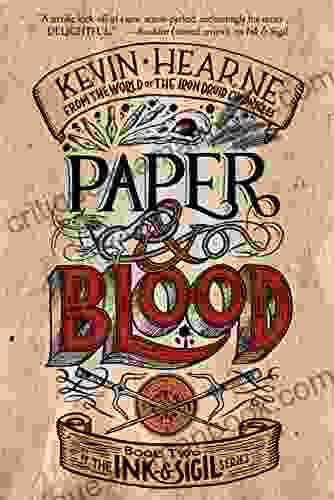
 Dan Henderson
Dan HendersonPaper Blood: Two of the Ink Sigil
By D.S. Otis In...
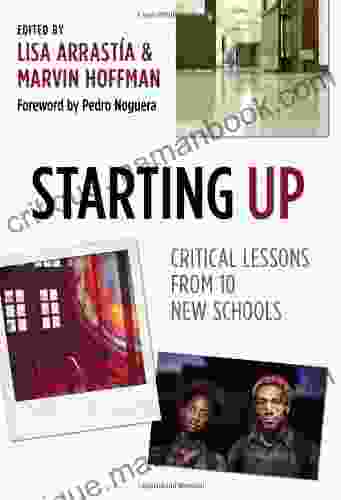
 Joseph Conrad
Joseph ConradStarting Up: Critical Lessons from 10 New Schools
Starting a new school...

 William Powell
William PowellThe Peculiar World of Funny Science Fiction Comedy: Where...
Prepare yourself for an...
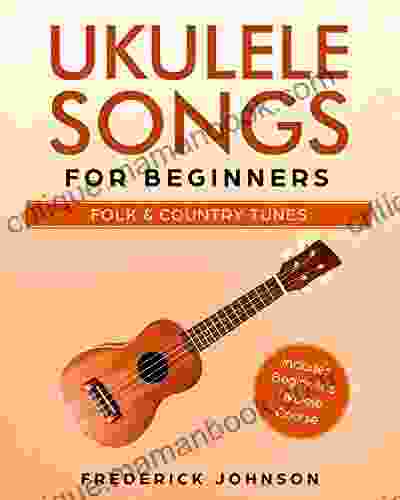
 Edgar Hayes
Edgar HayesUkulele Songs for Beginners: A Comprehensive Guide to...
Embark on a musical journey with the...
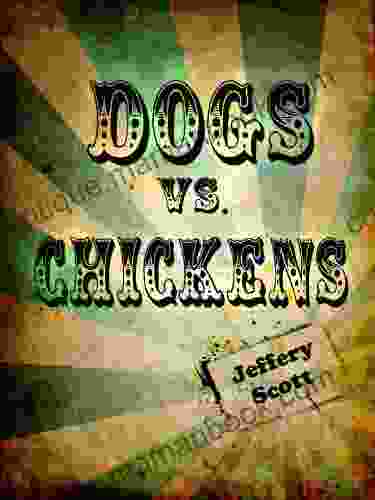
 Ralph Turner
Ralph TurnerDogs vs. Chickens: A Comprehensive Guide to Choosing the...
Dogs and chickens are both popular...
4.5 out of 5
| Language | : | English |
| File size | : | 7852 KB |
| Text-to-Speech | : | Enabled |
| Enhanced typesetting | : | Enabled |
| Word Wise | : | Enabled |
| Screen Reader | : | Supported |
| Print length | : | 640 pages |
| Item Weight | : | 12 ounces |
| Dimensions | : | 10.12 x 7.17 x 0.79 inches |


